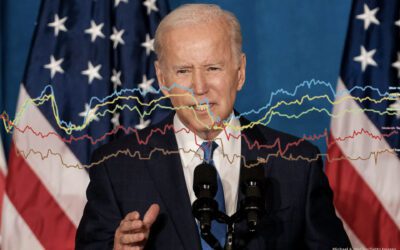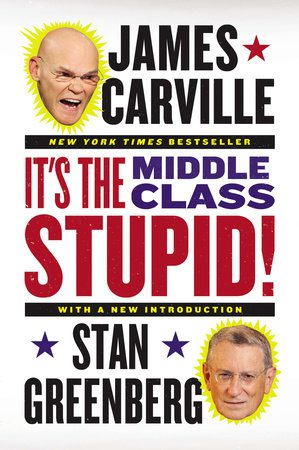PRESIDENT INSPIRES CONFIDENCE ACROSS PARTY LINES
In his speech to the nation tonight, Barack Obama managed to break through the partisan polarization of Washington and connect directly with American voters across the political spectrum according to dial and focus group research conducted during the speech. His speech inspired confidence in voters of all political stripes in his understanding of the challenges the country faces, as well as his agenda for the future.
Democracy Corps conducted dial testing of the speech with 50 Independent and weak partisan voters in Henderson, Nevada, followed by focus group discussions with voters who shifted toward support of Obama’s economic plan after seeing the speech. The dial group participants were evenly divided among Obama and McCain voters.
These swing voters reacted strongly to Obama’s message. Despite having a Republican tilt, 68 percent of these voters came into the speech approving of Obama’s job performance. After the speech, these already high marks moved even higher, rising to a remarkable 82 percent. In fact, Obama saw gains nearly across the board, on both personal traits and confidence in his handling of most major issues. In particular, the president strengthened his position on fiscal issues, gaining 26 points on taxes and 18 points on the federal budget.
What was most striking about the reaction of these voters was the lack of polarization. In past State of the Union speeches and other major presidential addresses we have tested, voters from the opposite party of the president tend to have a knee-jerk negative reaction, generally rating his words less favorably and moving below 50 on our dial scale of 0 to 100. That was not the case with Obama’s speech. Republicans rarely dropped below 50 and even exceeded 70 during parts of the President’s speech.
Most importantly, for most of the speech the dial lines for Democrats, Republicans and Independents moved in concert in a way we have rarely seen. While the partisan lines did diverge on a couple of important issues – including Obama’s economic recovery plan, health care, and government regulation – they mostly showed a unified, national response in favor of the President’s agenda. At times, it seemed as if Obama was deliberately speaking past his audience in the divided House chamber and offering a broader appeal to American voters hungry to move past partisan squabbling. That appeal clearly connected with these voters.
The President also had success on one of his most important, and difficult tasks: selling the financial rescue plan to a skeptical public. Indeed, initial reactions to his discussion of the financial crisis were circumspect. But when Obama argued that the financial rescue was necessary to keep the economic recovery from being choked off before it could get started, and particularly when he insisted his policy was “not about helping banks, it’s about helping people,” the dials moved strongly in Obama’s favor, with virtually no difference between Democrats, Republicans and Independents. Moreover, when Obama focused on the need to hold banks accountable, end their use of corporate jets, and require them to actually start lending again in return for taxpayer money, he received some of his highest scores of the night. As a result, he gained 16 points on his handling of the financial and banking crisis in post-speech testing.
We also conducted two focus groups after the dial session among voters whose support for Obama’s economic plan increased after watching the speech – one group comprised of McCain voters, the other of Obama voters. Both groups were deeply impressed with Obama; they saw him as sincere, passionate, in command, and wholly committed to the task at hand. Perhaps most importantly, they strongly agreed with his simple statement that “I get it.” By succinctly and accurately diagnosing the problems we face without engaging in political finger-pointing, he inspired confidence in his ability to move the country forward.
There was broad agreement among Obama and McCain voters alike that Obama’s immediate economic goals – stimulating lending, restoring consumer confidence, stemming the housing crisis, and protecting American jobs – and his broader agenda – built around major investments in alternative energy, health care, and education – represent the best hope for rebuilding our economy. Both groups also applauded his focus on reducing the deficit and were anxious to hear more about the 2 trillion dollars in spending cuts that his administration has already identified.
The Obama voters were particularly taken with Obama’s passion and leadership. They described themselves as cynical and skeptical, but they expressed genuine confidence in his ability to lead country after hearing Obama identify the challenges and lay out the path forward. They wholeheartedly agreed with his simple statement – “I get it.” And they highlighted his emphasis on accountability at all levels – from holding banks accountable for the taxpayer dollars they receive to recognizing the critical need for proper parenting to a broader emphasis on personal responsibility – as a desperately needed change from the Bush years.
On the issues, energy was the most important piece of the agenda laid out in this speech for the Obama voters. It perfectly matches the economic goals of these voters – creating jobs, strengthening America’s infrastructure and independence, and planning for long-term economic growth and prosperity rather than short-term fixes.
The McCain voters were more skeptical about Obama’s ability to turn his lofty ideas into reality, but they genuinely want him to succeed and express confidence in his leadership and capabilities. They wanted to hear more details, especially on health care, but were particularly enthusiastic about his insistence on making education a top priority and the specific plans he outlined on teacher pay and accountability, eliminating dropouts, and providing tuition assistance for community service.
Both groups saw bi-partisanship in Congress as a critical goal. They credited Obama with making real efforts to achieve this goal and almost unanimously agreed that Republican opposition to the stimulus package was founded on partisan posturing rather than principle. But they also made it very clear that when it comes to fixing the economy and enacting the agenda laid out in this speech, urgent action is paramount and can’t be sacrificed in an effort to achieve bi-partisan consensus.




